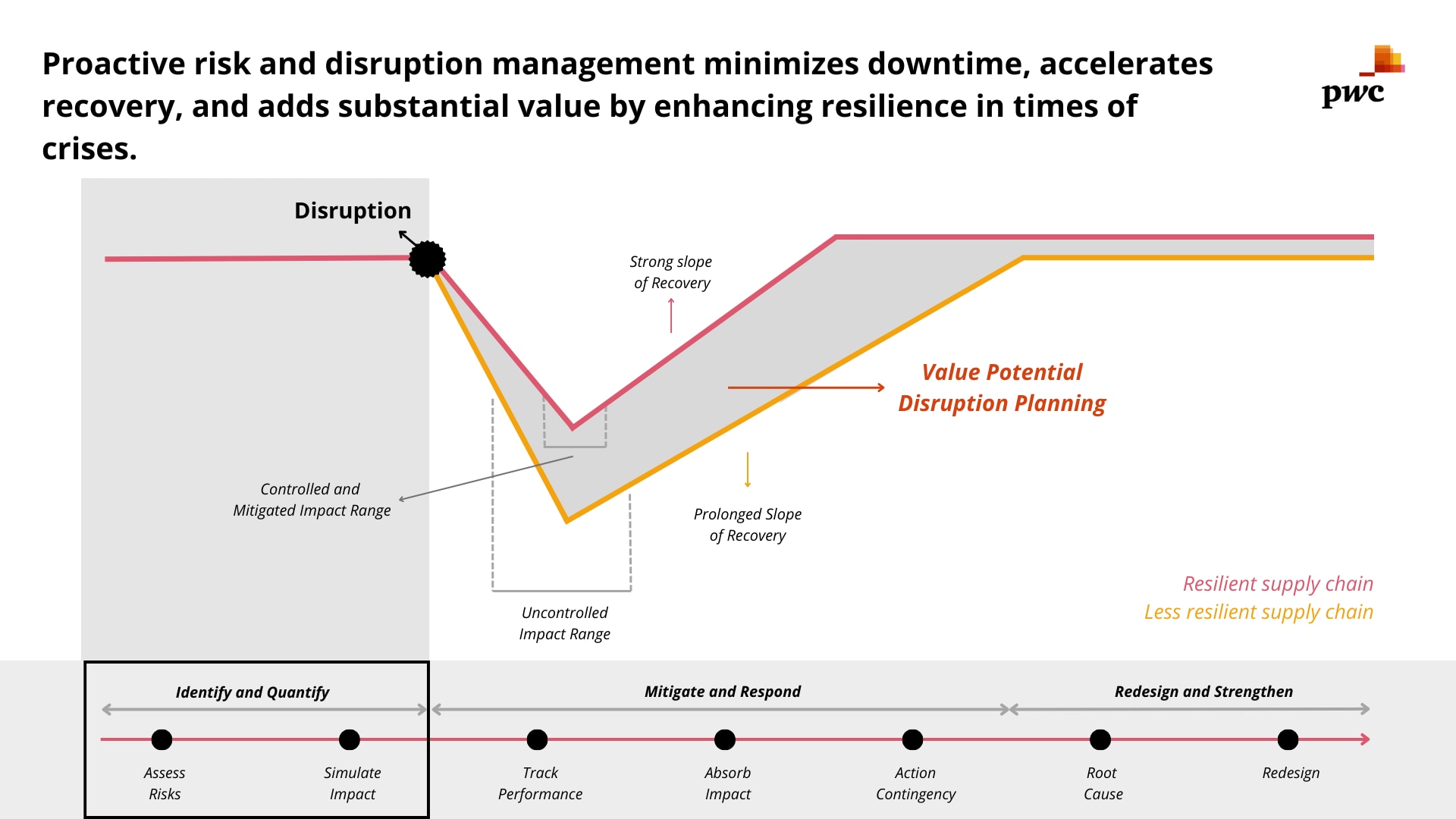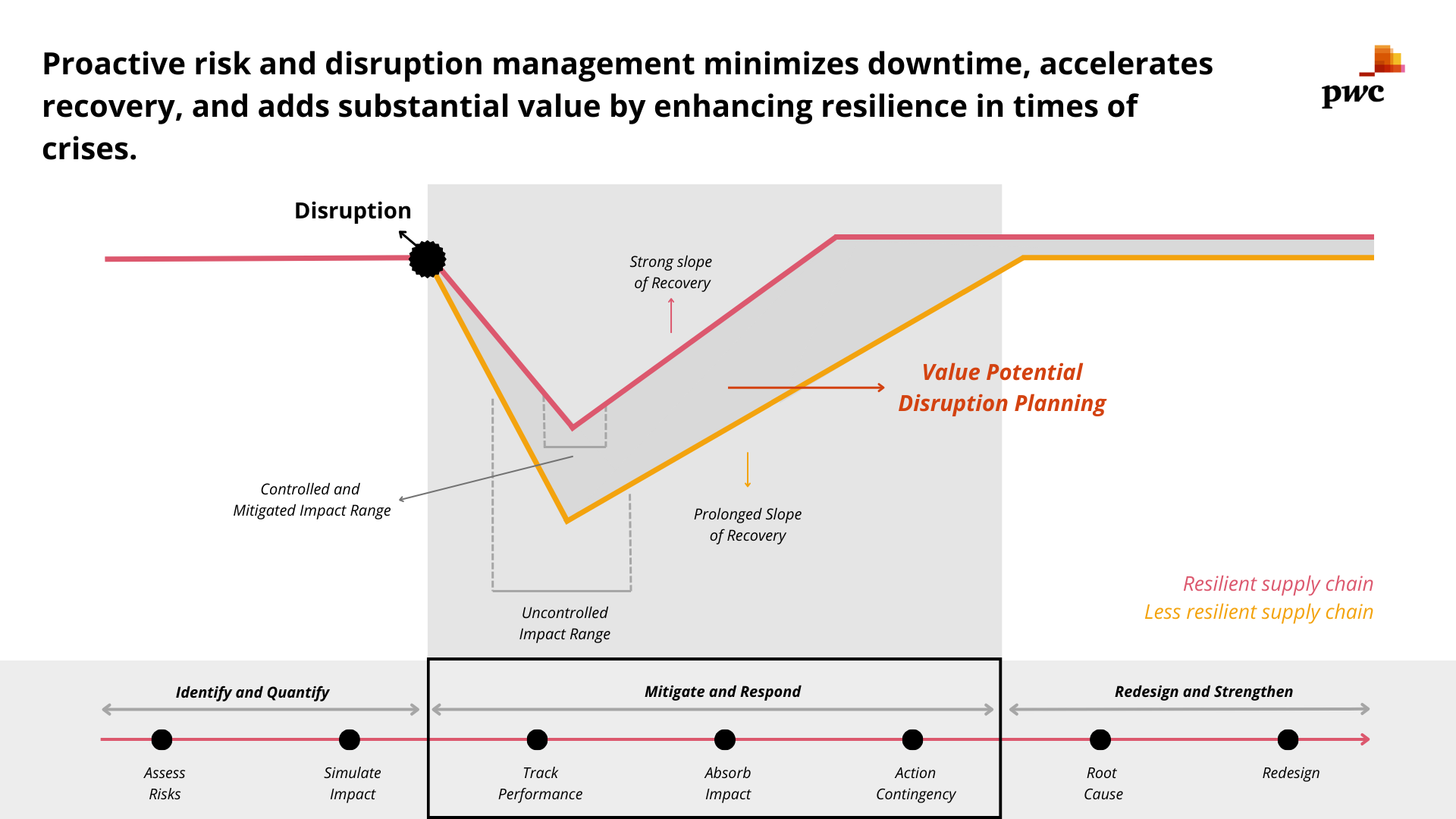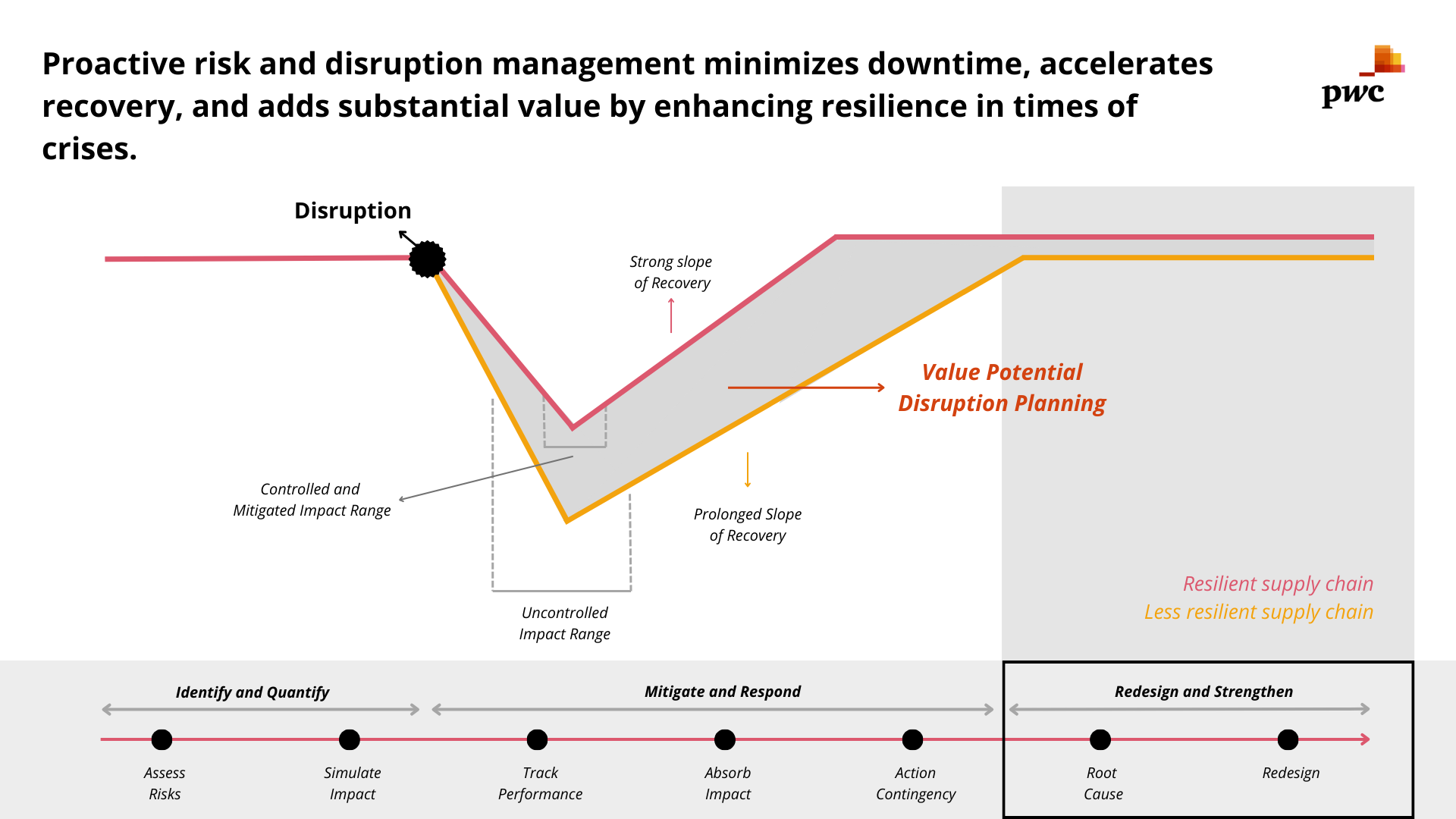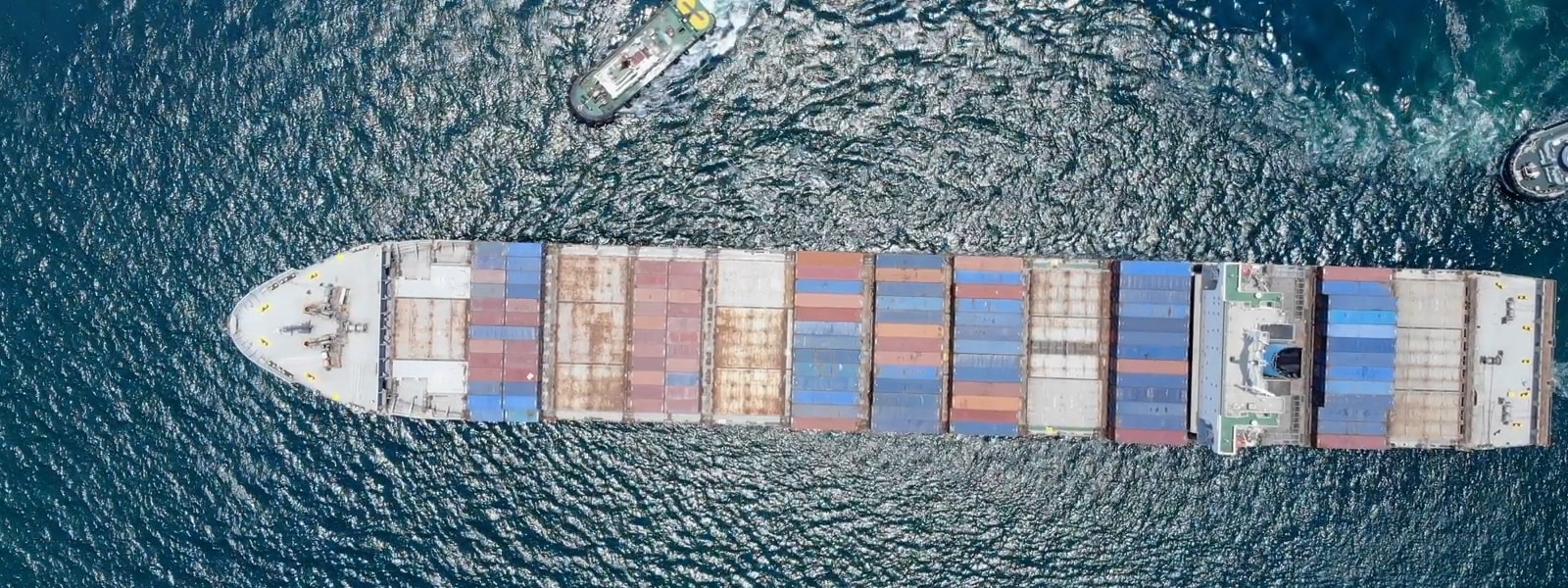Identify, quantify and prepare
Risk identification
Effective disruption planning begins with the identification of potential risks. A dedicated Risk Analyst should be assigned to proactively detect and analyse risks, from a global pandemic to supplier insolvency, from geopolitical tensions to inefficient processes. This proactive approach can be facilitated using a structured risk and impact identification model.

Risk impact quantification
Once potential risks are identified and thoroughly analysed, they should be proactively tracked and quantified with the help of a Flow Performance Analyst, armed with leading indicator metrics and an appropriate set of low-touch escalation protocols.
This involves quantifying the probability of occurrence of a risk, assessing the impact when it occurs, and establishing a notice period in which to issue an alert as soon as a situation begins to unfold. This helps organisations detect disruptions as soon as they occur.
Preparation
To optimise response strategies, a Scenario Engineer can develop various scenarios using an (AI-driven) simulation model to automatically calibrate processes under different scenarios. This technology-driven approach allows organisations to classify these scenarios, to better understand their implications on the supply chain and its performance. They can then evaluate possible solutions to mitigate the effects of disruptions, categorising the mitigation actions into prevention, reducing impact, or speeding up the recovery process to restore business as usual.
An adaptive planning tool is used to analyse and optimise the potential outcomes of these scenarios, such as output maximisation, cost minimisation, prioritised deliveries, or a combination of these criteria. This will help the organisation make the best possible real-time choices, enhancing its ability to respond effectively when faced with disruptions.
Pre-defining relevant KPIs for different risks enables the organisation to focus on the right priorities and mitigation actions and, later, to measure the effectiveness of responsive actions.
Mitigate and respond

Specialist response team
Despite preventive measures, disruptions may occur. In such cases, an operational SWAT team is crucial for a swift and effective response.
Each member of this specialised team needs to be ready and to understand their respective roles, including ownership and responsibility. To ensure agility, consider establishing an escalation protocol, empowering the team to take charge at the lowest level appropriate, without waiting for C-level approval. This, coupled with having playbooks ready, enhances responsiveness and minimises the impact of disruptions, ensuring smooth operations.
Communication
Effective communication is paramount in crisis situations, where every second is critical and misinformation or miscommunication can result in hasty and expensive decisions. In such circumstances, specific communication channels are indispensable for essential functions such as production, delivery, sourcing and client interactions. Additionally, assigning a clear lead for each channel ensures a singular source of information, minimising the risk of confusion and promoting swift and accurate decision making.
“Today, predicting and responding in real time is crucial. It's no longer enough to plan for the future and then react when things go wrong. Real resilience lies in anticipating a disruption so you already know what to do when it happens.”
Redesign and strengthen
In the aftermath of a disruption, it's essential to learn from the experience and strengthen the supply chain.
Redesign
A Flow Designer, equipped with insights gained during the recovery process, will implement structural changes aimed at enhancing resilience through proactive strategies. This could include building logistics capability within the ecosystem to manage highly dispersed processes, as well as fostering cooperation to gain from synergies through sharing information and resources.

To improve resilience, it’s particularly important to develop clear and agile protocols tailored for potential disruptions. Recognising that some disruptions exhibit repetitive patterns, organisations can significantly improve both preparedness and response efficiency by establishing a well-defined protocol — often called a disaster recovery plan (DRP).
Additionally, use of a multi-tier visibility platform to expand visibility of the supply chain to tiers 2, 3 and beyond can be very valuable. It is equally vital to achieve transparency through multi-tier data sharing.
Summary
Disruption planning isn't merely about planning the reaction to unforeseen events; it's a proactive strategy for navigating today’s volatile business world. This is an ongoing process that requires embedding a combination of new roles, processes and technologies into your supply chain operating model. By identifying, quantifying, preparing for and responding to disruptions, organisations can not only make their supply chain stronger and more resilient, but also survive and thrive, turning disruptions into opportunities for growth and improvement.
Contact us














